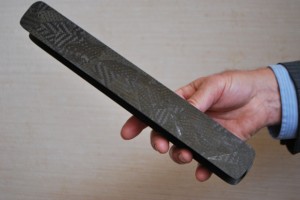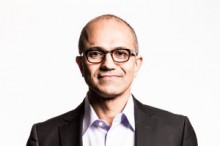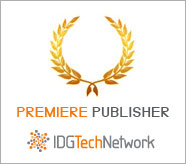Seattle Week in Review: Happy Independence Day Edition
Happy Independence Day Weekend. (And Happy Canada Day to our neighbors to the north.) Xconomy Seattle is planning to harvest some Dungeness crab from Puget Sound, eat fresh berries in patriotic colors, and contemplate freedom in the midst of the craziest political season of our lives. But first, here’s a recap of some technology news—University of Washington computer science demand; an update on Techstars Community Programs (née UP Global); and a partnership for the Composite Recycling Technology Center—as well as some weekend reading recommendations.
—More applicants to the University of Washington want to major in computer science than any of more than 100 other majors. The indication of preferred major is in no way binding and has no impact on their likelihood of admission, says UW computer science professor Ed Lazowska. “Still, it’s an indicator of which way the winds are blowing,” he says in an e-mail.
“Computer science has been in the top 10 for many years, but business and biology have been far ahead,” Lazowska adds. “In the past five years, interest in computer science has grown dramatically, so that it is now the No. 1 first-choice major among incoming UW freshmen.”
And still more students—including more than half of the women who eventually major in computer science—become interested in UW’s nationally-ranked program after taking introductory courses, even if CS wasn’t their first-choice major. (Others, of course, take that intro course and decide to pursue something else.)
In the face of this mounting demand, the UW is trying to make room in its computer science major for more students. “It’s clear that we are far smaller than we need to be,” Lazowska says. “We desperately need to continue to grow.”
—Techstars acquired Seattle-based UP Global in June 2015. The deal transitioned nonprofit UP Global, producer of entrepreneur-nurturing events like Startup Weekend, into an arm of for-profit startup accelerator and investor Techstars called Techstars Community Programs. This week, Techstars co-founder and managing partner David Brown provided an update on the integration of the two organizations. The first year, he writes, was focused “primarily on observation and listening.” The next year is about “action and improvement.”
“We are working to improve communication as well as to build better connections and tools for Community Leaders and the communities they serve,” Brown writes. “We are still on a mission to build a world where entrepreneurs can find like-minded individuals who share a passion and community for entrepreneurship.”
—Good news for Washington’s efforts to find beneficial uses for scrap carbon fiber and other advanced materials: The Composite Recycling Technology Center (CRTC) in Port Angeles, WA, (which we reported on a year ago) will become a satellite location for the Department of Energy’s Institute for Advanced Composites Manufacturing Innovation, based at Oak Ridge National Laboratory in Tennessee.
The agreement, announced today by Washington Sen. Maria Cantwell, will give the CRTC access to research and development facilities and funding opportunities. It will also help Peninsula College train composite manufacturing workers.
The CRTC, a first of its kind facility, aims to develop beneficial uses for scrap carbon fiber from manufacturers in the state such as Boeing, which uses the material in aircraft including the 787. Ninety-six companies in Washington manufacture composites and 2 million pounds of carbon fiber scrap, worth some $50 million, end up in landfills annually. In April, the CRTC signed a memorandum of understanding with Toray Composites to supply scrap carbon fiber and work on market development.
—Maybe you want to completely unplug over the weekend. Good for you. If you want to spend some free time catching up on reading, here are a few recommendations:
Microsoft CEO Satya Nadella lays out six “musts” for a sort of humanistic, empathetic artificial intelligence in an essay for Slate. “Ultimately, humans and machines will work together—not against one another,” he writes. Let’s hope so.
We covered the Amazon-driven downtown Seattle building boom last week. This week, Bloomberg takes an in-depth look at the tech giant’s urban campus, including new details of what employees are expected to do inside the iconic Biospheres.
Xconomy managing editor Greg Huang curates a list of top stories from around the country through the first half of 2016 (that went by fast). It’s a great sampling of the scope and depth of coverage we provide from 11 innovation clusters nationwide.
Also, a couple of good ones from our Xconomist Forum this week:
Seattle (soon to be London) serial entrepreneur Marcelo Calbucci reflects on the Brexit’s impact on the startup ecosystem he plans to join.
University of Washington law professor (and verified rocker) Sean O’Connor breaks down the Stairway to Heaven copyright case, and what it means for innovators more broadly. O’Connor makes his points with words and music. And for those of you who don’t get the headline, No Stairway (Infringement) and the Importance of Shared Design Tools in Innovation:




















































